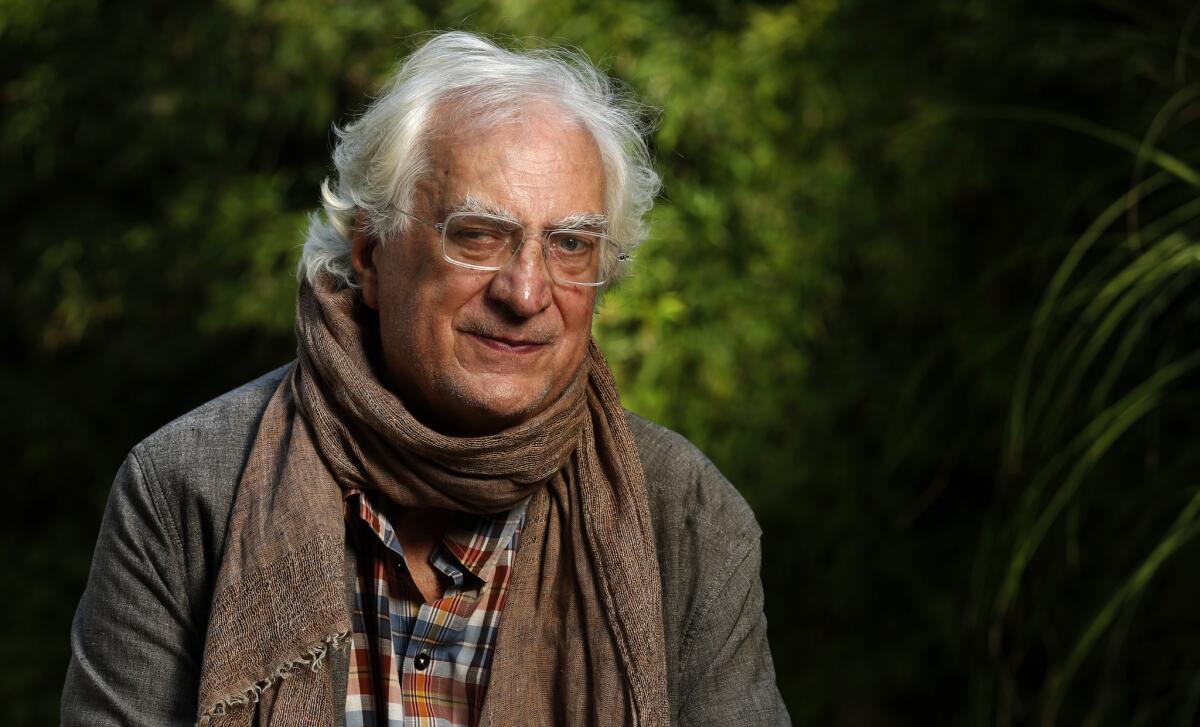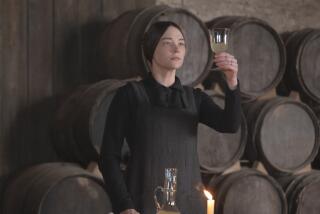French auteur Bertrand Tavernier takes film lovers on an incredible âJourneyâ through the past

The hottest ticket at the 2016 Cannes Film Festival, the film people pushed and shoved hardest to get into, was not a heavy drama or heartbreaking romance, but a three-hour-plus documentary on the history of French cinema. If you donât think that sounds scintillating, you donât know Bertrand Tavernier.
Tavernier is more than the director of the 190-minute âMy Journey Through French Cinema.â At age 76 heâs had a remarkably long and varied cinematic career. This encompasses work as a film historian, a dramatic director whose more than two dozen films include the Oscar-winning ââRound Midnightâ and âA Sunday in the Country,â even a publicist who helped promote some of the key films of the French New Wave.
More than any of this, and linking them all, are Tavernierâs analytical powers and his enthusiasm, both of which are on view in âJourney,â which is now playing at Laemmleâs Royal.
Settled comfortably on a sofa in the Beverly Hills guest house of Irwin Winkler (his ââRound Midnightâ producer), the director was in Los Angeles recently, checking in with fellow devotees like Leonard Maltin and Quentin Tarantino on the way to showing his documentary to eager audiences around the country.
MORE: âMy Journey Through French Cinemaâ is a deeply personal and passionate trip Âť
Given that Tavernier is as formidably articulate in English as he is in French, the chance to talk to him personally about this film in particular and film culture in general was too tempting to pass up.
The director refers to âJourneyâ as âa film of admiration and gratitude,â an opportunity to âshare my passions, to share with audiences what I have discovered. I wanted it to be personal, moving, funny â everything cinema was for me.
I live in a world where I see a growing ignorance about films and books of the past. People are completely taken over by the tyranny of the present.
— Bertrand Tavernier
âAs I was becoming old enough to see the grave, I wanted to express how grateful I am not only for the joys these filmmakers gave me, but for the fight they put up, the courage they had.â
âJourneyâ covers French film from the start of sound to the early years of the New Wave, with emphasis on classic directors like Jean Renoir and lesser known names like Edmond T. GrĂŠville, stopping when Tavernier himself became a feature director with 1974âs âThe Clockmaker of St. Paul.â If these pictures are firmly rooted in the past, thatâs the way he thinks it should be.
âThose films gave us so much material, so much to think about; I want to throw light on them, on how alive they are,â the director explains. âI live in a world where I see a growing ignorance about films and books of the past. People are completely taken over by the tyranny of the present.â
Tavernier admits to being inspired by two earlier documentaries by Martin Scorsese, 1995âs âA Personal Journey With Martin Scorsese Through American Moviesâ and 1999âs âMy Voyage to Italy,â but points out that while âMarty had a huge teamâ he himself had but five people to work through an enormous amount of material.
âWe were trying to get rights, negotiating deals for 600 clips from more than 100 films. Before that, we discussed 1,200 to 1,500 clips and had to watch 1,000.
âSome films had no material or the rights were not completely clear or people were asking for too much money. We never had a problem with the people making films, it was the people holding the rights.â
Still, despite maneuvering through all this cinema, Tavernier is not done with French film. He is working on a completely different TV series about âall the people I left out. I have so much remorse, so much guilt, about leaving out [Robert] Bresson, [Max] OphĂźls, [Jacques] Tati, [Jean] GrĂŠmillon â one of the most underrated directors â [Marcel] Pagnol, [Henri-Georges] Clouzot. Itâs going to be eight hours and itâs not enough, I would need 10.â
When you put a label on a film you put it in a box, it prevents you from from discovering what makes a film unique.
— Bertrand Tavernier
A marvelous raconteur, Tavernier loves to tell stories about the filmmakers heâs known, his mentors Jean-Pierre Melville and Claude Sautet and giants like the one-eyed American director Raoul Walsh, who told Tavernier he stopped a meddlesome producer from visiting his set by dropping his glass eye in a cup of coffee, wiping it off and putting it back in the empty socket.
Tavernier gets especially animated when talking about the excitement of discovering previously little known films he considers gems, like 1958âs âPolice Judiciaire,â a procedural by Maurice de Canonge, âa director who most of the time was a lousy director. But this is really rewarding, so you have to be always open-minded.â
If Tavernier loves movies unreservedly, what he canât abide is the cultureâs habit of categorizing them. âI donât like the idea of schools of filmmaking, like the New Wave or poetic realism,â the director explains. âWhen you put a label on a film you put it in a box, it prevents you from from discovering what makes a film unique. All my life I have fought against general statements. I refuse these fights; I want to praise all kinds of films.â
One of Tavernierâs favorite anecdotes involves director John Boorman visiting the deathbed of the great British filmmaker David Lean.
âLean took his arm and said, âJohn, we had a great life, we made films.â Boorman said, âThey tried to stop us,â and Lean replied, âYes, but we fooled them.â He died the next day.â
ALSO
French thriller âMokaâ builds tension with a grieving mother on a mission
âCars 3â keeps the family-friendly franchise rolling along
More to Read
Only good movies
Get the Indie Focus newsletter, Mark Olsen's weekly guide to the world of cinema.
You may occasionally receive promotional content from the Los Angeles Times.










